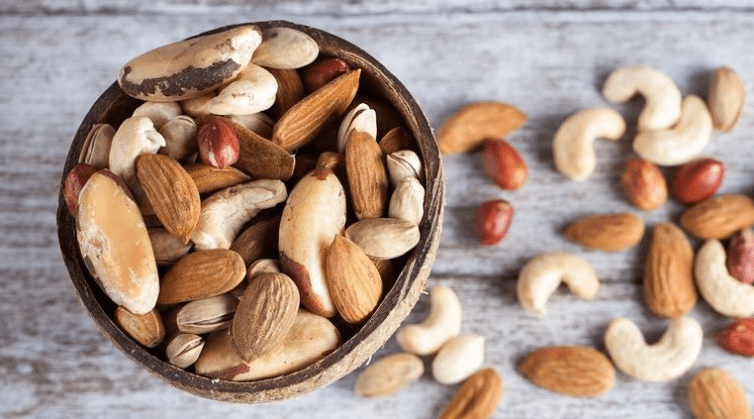
3 Amazing B Vitamins: Folate, Vitamin B6, and Vitamin B12
Vitamins are naturally present in food and are required in minimal amounts for various body processes, including the production of energy and the creation of red blood cells. We examine 3 amazing B Vitamins.
Our bodies need 13 vitamins, of which the B-group vitamins comprise eight. Contrary to what is frequently claimed in advertising for dietary supplements, the B-group vitamins do not give the body the energy it needs.
It is true, however, that the body lacks power when B-group vitamins are absent. This is so that the body can use nutrients that produce energy, such as fat, carbs, and protein, as fuel, which the B-group vitamins are necessary for.
Additional B-group vitamins are required for cells to reproduce by creating new DNA. Visit Need Vitamin B17 for more information on this Extremely Important vitamin that Big Pharma and the FDA does not want you to know or have.
Vitamin B
Eight different vitamins are referred to as vitamin B. The body uses all of the B vitamins to turn food into energy. Additionally, each vitamin has a distinct role in a person’s health.
All necessary B vitamins are contained in a single pill called a vitamin B complex supplement. Some have the recommended amount of each B vitamin (RDA). A few or all of these vitamins are given in larger dosages to others.
A diversified, balanced diet typically provides an individual’s vitamin B. Others might profit from taking a vitamin B-complex supplement, though.
Folate
Beans, almonds, broccoli, peanuts, liver, and spinach are foods high in folate. Water-soluble vitamin B9 comes in its natural form as folate, which is present in various meals.
Additionally, it is sold as a supplement in the form of folic acid and added to foods; this form is more readily absorbed than food sources. Folate is vital in the metabolism of proteins and contributes to the synthesis of DNA & RNA.
It is critical to understand that the decomposition of homocysteine in high amounts can be harmful to the body. Folate is essential to the development of red blood cells as well. It is critical during rapid growth, such as pregnancy and the development of the fetus.
● Food Sources Of Folate
Natural sources of folate include a wide range of foods. However, folic acid added to foods and supplements is more readily absorbed.
To lower the risk of neural tube abnormalities, the U.S. Food and Drug Administration mandated in January 1998 that producers add folic acid to commonly consumed meals, such as bread, pasta, and other grain products.
Vitamin B6
Water-soluble pyridoxine is found naturally in many foods and is often added to food and supplements. PLP is a coenzyme that helps more than 100 enzymes carry out a variety of tasks, such as breaking down proteins, carbs, and lipids; preserving homocysteine levels at normal ranges; and promoting immune system and brain health.
The effect of vitamin B6 in preventing disease has received extensive research. The vitamin in capsule form has the best chance of alleviating nausea brought on by pregnancy.
However, such use must only take place under a doctor’s guidance. A higher risk of cancer may be linked to adequate blood levels of B6 as opposed to low blood levels of the vitamin.
It is inconclusive, and not advised to take additional B6 supplements over the RDA quantities found in conventional multivitamin formulations.
● Food Sources Of Vitamin B6
A wide range of foods contains vitamin B6. Fish, cattle liver, other organ meats, starchy vegetables, and fruit are the best sources of vitamin B6. A varied diet contains a bioavailable amount of vitamin B6 of about 75%.
Vitamin B12
Cobalamin, a type of vitamin B12, is naturally present in animal foods and products. In addition to that, it may also be added to meals or dietary supplements.
Red blood cells and DNA must be formed, which requires vitamin B12. Additionally, it plays a significant role in the growth and operation of brain and nerve cells. The protein in the meals we eat is what vitamin B12 binds to.
The vitamin B12 is then combined with an intrinsic factor protein and absorbed further down in the small intestine. You must obtain vitamin B12 through your diet or supplements because it is a necessary nutrient your body cannot produce.
Expecting and Nursing Women
Vegetarians, women who are expecting or nursing, and other people at risk for deficiencies may want to monitor their diets to be sure they are getting enough.
B12 is present in its free form in supplements and fortified meals, allowing for easier absorption. There are numerous vitamin B12 pills on the market.
Studies have not revealed a significant difference, despite claims that some forms—such as sublingual tablets or liquids inserted beneath the tongue to be absorbed through the tissues of the mouth—had better absorption than conventional tablets.
● Food Sources Of Vitamin B12
Foods of animal origin, such as fish, meat, eggs, and dairy goods, naturally contain vitamin B12. Additionally, enriched nutritional yeasts and breakfast cereals are accessible sources of vitamin B12 with a high level of bioavailability.
On average, a woman who consumes more vitamin B12 than the RDA has 0.44 mcg/L of vitamin B12 in her breast milk.
Because absorption substantially declines when the intrinsic factor’s capacity is surpassed, the estimated bioavailability of vitamin B12 from food varies depending on vitamin B12 intake.
The kind of food supply affects bioavailability as well. For instance, dairy products have around three times as much vitamin B12 as meat and poultry.
When taken as dietary supplements, vitamin B12 has a bioavailability of roughly 50% higher than from food sources.
Conclusion
You are on a healthy diet if you consume enough of the eight B complex vitamins. Poultry, meat, fish, eggs, seeds, leafy greens, and fortified foods like breakfast cereal and nutritional yeast are a few of the best sources of B vitamins.
Consider limiting your intake of some food groups because of dietary restrictions or allergies. Your risk of B vitamin deficiency may rise in the situation.
Try a free online tool to track and examine your weekly food intake if you need clarification on whether you’re receiving enough B vitamins. Then, you can modify your dietary patterns to ensure you acquire the required vitamins. We examined 3 amazing B Vitamins.
Do not be afraid to reach out to me, Mark E Wilkins, to assist you in any issues you might have. Most Hypnotherapy sessions last 2 hours and EFT Sessions are usually handled with one session. Life Coaching is 45 minute session, one a week.
To make an appointment, first listen to the Pre-talk and fill out he Complementary Healthcare Provider Disclosure. The use the Contact Form to request an appointment with the Bohol Hypnosis Expert.





